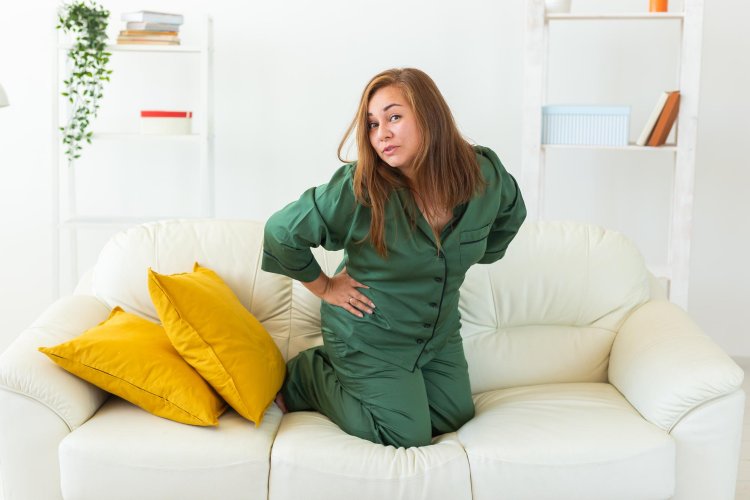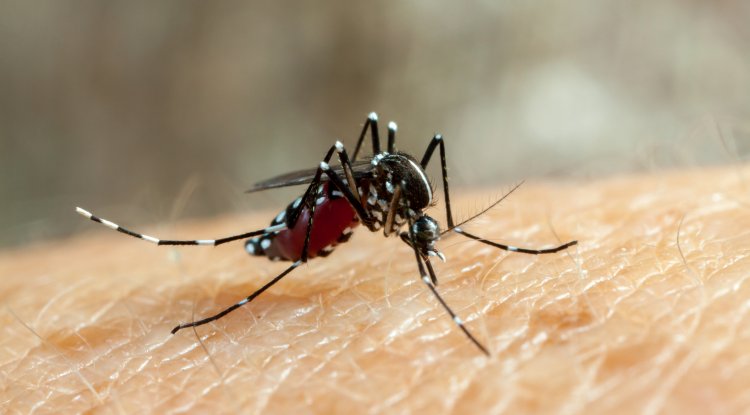What is Abdominal Bloating? Why Does Abdominal Bloating Occur and What Helps with Abdominal Bloating?
What Causes Abdominal Bloating? Digestive System Disorders: One of the main causes of abdominal and stomach bloating is digestive system disorders. Diseases such as celiac disease, irritable bowel syndrome, ulcers, gastritis, dyspepsia, constipation, stomach and intestinal cancers, gallbladder disorders, and hiatal hernia can lead to gas accumulation in the intestines and stomach, resulting in bloating.

Unhealthy Eating Habits
Excessive consumption of high-carbohydrate foods can cause bloating in the stomach and intestines. Low-fiber foods can lead to reduced bowel movements. Eating too quickly can also cause excessive air swallowing, which can result in gas in the stomach and intestines. Eating habits can be one of the most important factors in bloating. Especially for patients curious about bariatric surgery, a low-carbohydrate special diet may be needed to reduce bloating.
Food Allergies
Some people's stomach and intestinal floras are sensitive to certain foods. Consumption of foods such as milk, sugar, eggs, soy, gluten, wheat, and corn can cause indigestion and, consequently, bloating. In addition, gas-producing foods such as legumes, cabbage, cauliflower, and broccoli are also among the causes of bloating.
Stress
Stress, which has negative effects on the digestive system, can hinder the regular functioning of the esophagus, stomach, and intestines.
What Causes Persistent Abdominal Bloating?
Abdominal bloating can occur for many different reasons. Digestive problems, improper eating habits, post-meal air swallowing, lactose intolerance, or gluten sensitivity can lead to abdominal bloating. Additionally, more serious health problems such as tumors, intestinal obstructions, fluid accumulation (ascites or blood), constipation, and irritable bowel syndrome (IBS) can also cause abdominal bloating.
How to Relieve Abdominal Bloating?
Some methods can be tried to alleviate or relieve abdominal bloating. These methods include regular exercise, eating slowly, avoiding fatty and gas-producing foods to reduce gas formation, drinking plenty of water, and consuming fiber-rich foods. Additionally, those sensitive to digestive problems can try mild physical activities such as slow walks after meals. However, if abdominal bloating persists for a long time or is severe, it is important to consult a healthcare professional.
What Causes Lower Abdominal Bloating?
Lower abdominal bloating can occur for many reasons. These reasons include premenstrual bloating, urinary system infections, urinary stones, ovarian cysts, pelvic inflammatory disease (PID), intestinal problems, constipation, or urinary tract infections. Each condition may have different symptoms and treatments, so it is important to consult a doctor for lower abdominal bloating.
What Helps with Lower Abdominal Bloating?
The specific treatment for lower abdominal bloating depends on the underlying causes. Treatment may include antibiotics for urinary infections, surgical intervention for urinary stones, medications or surgery for ovarian cysts, or diet and lifestyle changes for constipation. Especially in the case of lower abdominal bloating, it is important to seek expert advice by consulting a doctor.
Which Doctor to See for Abdominal Bloating?
In the case of abdominal bloating, you can consult with many different doctors. Generally, an internist or a family doctor may be the first specialist to consult. However, if a specific underlying health problem is present, you may be referred to specialists such as a gastroenterologist (specialist in gastrointestinal diseases), gynecologist (for pelvic problems in women), urologist (for urinary tract problems), or surgeon.
What Causes Upper Abdominal Bloating?
Upper abdominal bloating can occur due to problems in the stomach, esophagus, or upper intestines. These may include stomach ulcers, reflux disease, stomach cancer, gallbladder problems, liver diseases, or pancreatic problems. If you have complaints about upper abdominal bloating, you should be evaluated by a healthcare professional.
What Causes Abdominal Bloating in Women?
Abdominal bloating in women is usually due to urinary, gynecological, or digestive system problems. Premenstrual bloating, bloating during menstruation, ovarian cysts, pelvic inflammatory disease (PID), pregnancy, or intestinal problems can cause abdominal bloating in women. If women feel sensitive about abdominal bloating, they should consult a gynecologist or internist.
What Helps with Abdominal Bloating?
Abdominal bloating occurs due to the effect of gases formed in the stomach, and trapped gases can also stimulate nerve endings in the stomach walls, causing stomach pain.
So, what helps with stomach gas? One of the most effective ways to prevent gas formation in the stomach is to reduce the air swallowed, especially during meals. To achieve this, it is recommended to eat slowly and chew thoroughly. Also, talking during meals can increase air swallowing, so it is advisable to avoid talking as much as possible during meals. So, what helps with stomach pain? One of the major causes of stomach pain is stress. People exposed to intense stress have a higher risk of gastritis, ulcers, and spasm problems. Avoiding stressful environments as much as possible and seeking professional support when coping with unavoidable situations can help with stomach pain.
Treatment of Bloating
Like all other diseases, the treatment of stomach and intestinal bloating is also done according to the cause. Diagnostic methods such as endoscopy and colonoscopy can be used to find the underlying cause of bloating. When deemed necessary by the doctor, medication treatment can be applied depending on the cause. Probiotic use may be recommended. Generally, lifestyle changes are required in the treatment of stomach and intestinal bloating. Eating programs that are organized in 3 main meals and 3 snacks, which encourage eating little by little frequently, can be applied. Acquiring toilet habits and drinking at least 3 liters of water a day may be recommended. Patients can be directed to physical activities such as swimming, running, walking, Pilates, yoga, etc. to alleviate stomach and intestinal bloating.
#Health #DigestiveHealth #Bloating #StomachIssues #HealthyEating #Wellness #MedicalAdvice #HealthTips #HealthyLifestyle
Disclaimer:
The information provided in this article is for educational purposes only and should not be considered medical advice. If you have any health concerns or are experiencing symptoms, it is important to consult with a healthcare professional, such as a doctor or clinic, for proper diagnosis and treatment. Always seek the advice of your doctor or other qualified health provider with any questions you may have regarding a medical condition. Do not disregard professional medical advice or delay in seeking it because of something you have read in this article.
What's Your Reaction?





















